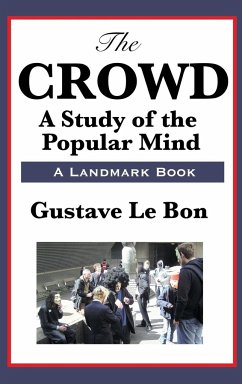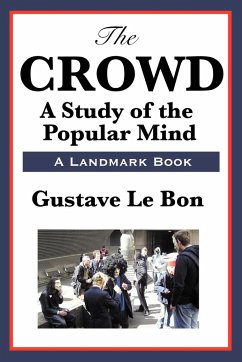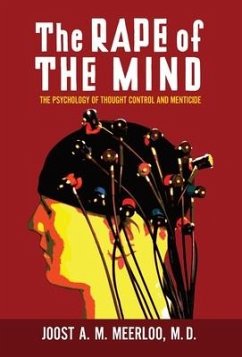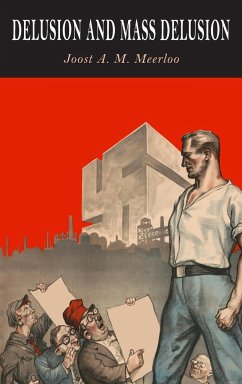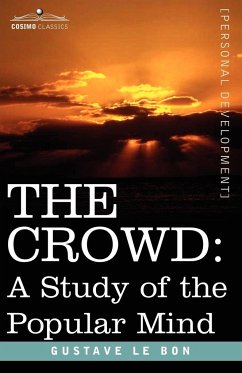
The Crowd
A Study of the Popular Mind
Versandkostenfrei!
Versandfertig in 1-2 Wochen
19,99 €
inkl. MwSt.
Weitere Ausgaben:

PAYBACK Punkte
10 °P sammeln!
The rise of mass media has changed the way societies think, and that they can think as a whole. French psychologist and sociologist GUSTAVE LE BON (1841-1931) recognized that late in the 19th century when he wrote what would become a foundational work of the study of the psychology of the masses. From criminal juries to parliamentary assemblies, religious sects to economic classes, Le Bon explores the nature of the many and varied collective consciousnesses that impact the very functioning of modern civilization. First published in French in 1895 and in English in 1896, The Crowd was a profoun...
The rise of mass media has changed the way societies think, and that they can think as a whole. French psychologist and sociologist GUSTAVE LE BON (1841-1931) recognized that late in the 19th century when he wrote what would become a foundational work of the study of the psychology of the masses. From criminal juries to parliamentary assemblies, religious sects to economic classes, Le Bon explores the nature of the many and varied collective consciousnesses that impact the very functioning of modern civilization. First published in French in 1895 and in English in 1896, The Crowd was a profound influence on Freud, Hitler, and Mussolini, and it is a must read for anyone who wants to understand everything from the power of advertising to the sway of propaganda, from the functioning of elections to the influence of the grass roots ALSO FROM COSIMO: Le Bon's The Psychology of Revolution




